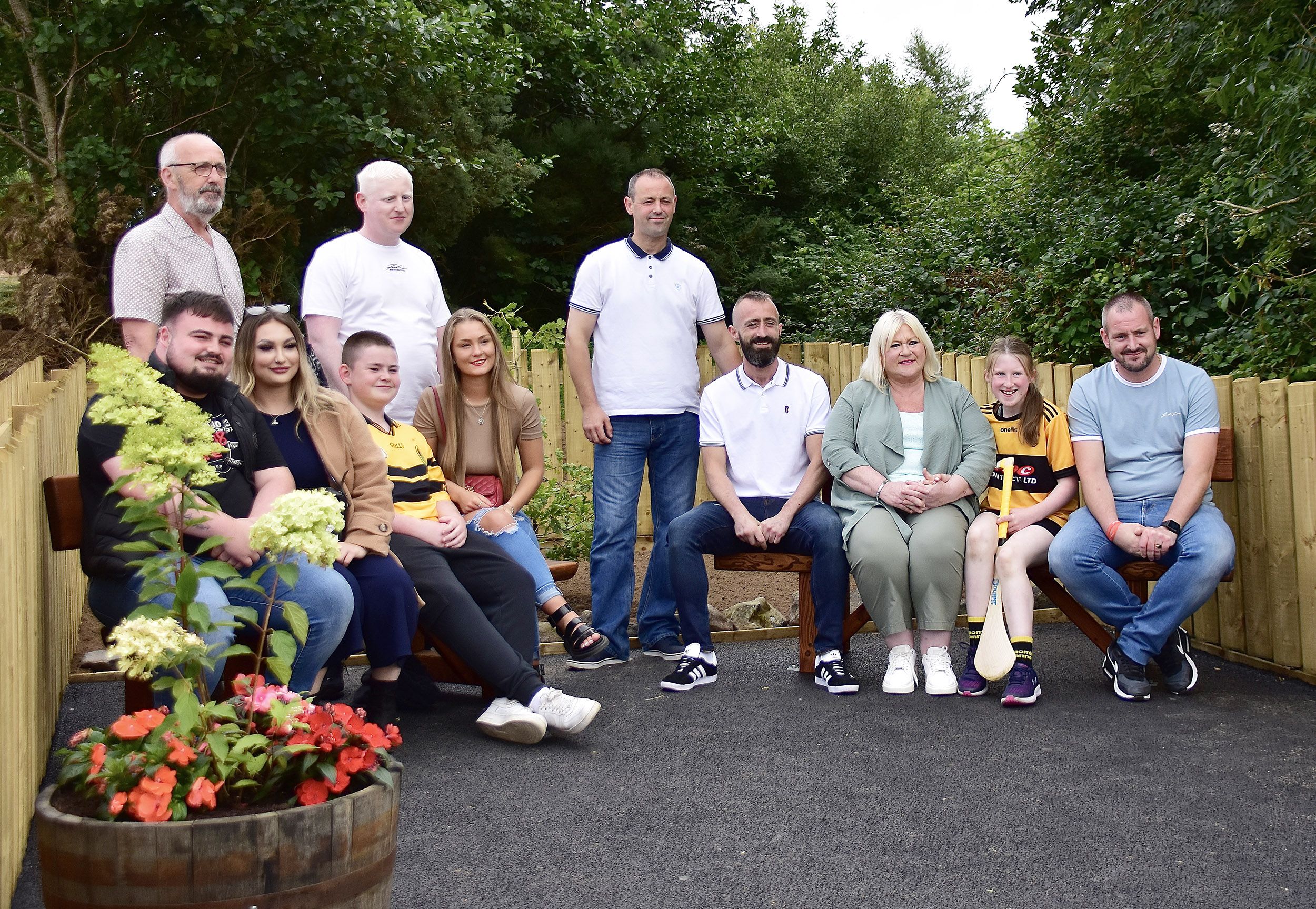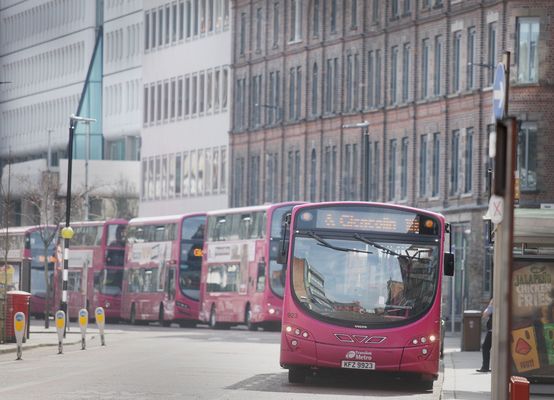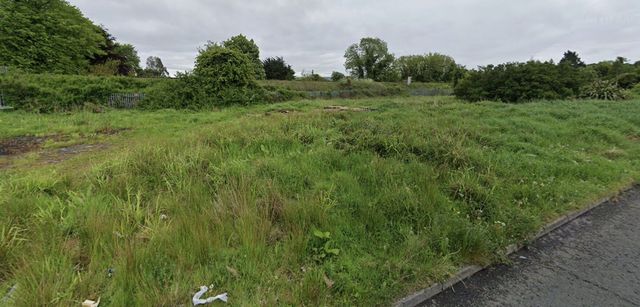NAOMH Éanna CLG in Glengormley was united in memory on Friday night for former player Gerard Lawlor, who was murdered by the UDA on 21st July 2002, aged 19.
The evening consisted of Gaelic games featuring the club's younger players before a ceremony in which the GAA club’s pitch was named ‘Pairc Ghearóid Uí Leathlobhair’ in his honour. Following this, another ceremony was held in which a memorial garden to Gerard was unveiled, Gairdín Suaimhnis Ghearóid Uí Leathlobhair.
Gerard’s memorial garden was opened with his family, former partner, his son Josh, and members of the club in attendance, along with respected human rights lawyer Niall Murphy who acted as Counsel to the Community Inquiry into the murder on the tenth anniversary of his death in 2012. The Community Inquiry’s report, released in November that year, found that serious deficiencies in the various investigations that have taken place into the murder, amounted to collusion.
Rest In Peace Gerard. So hard to believe it’s been 20 years already from you where brutally taken from us 🖤💛 https://t.co/I3IzR0T5WG
— Maria Magill (@MariaMag) July 23, 2022
The inquiry found that state agencies, including the PSNI and the Police Ombudsman, had all failed so far to provide an effective investigation in accordance with Article 2 of the European Convention on Human Rights, which protects the right to life.
A panel discussion was held after the commemorative events in Naomh Éanna’s clubhouse featuring Mr Murphy, who with the help of others including Relatives For Justice (RFJ), produced another extremely detailed booklet highlighting the many failings in the investigation into Gerard’s murder. Mark Thompson and Peadar Thompson from RFJ also gave contributions; Mark focusing on the current British government’s cavalier attitude towards justice for families affected by the conflict and the protection of state forces, while Peadar Thompson spoke of a current project being undertaken which is documenting all of the GAA members who were killed in the conflict since 1968, as well as RFJ’s plans to release a book, website and permanent exhibition to their memory at the new Casement Park.
JUSTICE: Peadar Thompson (Relatives for Justice), Niall Murphy and Mark Thompson (Relatives For Justice) with the booklet detailing the inquiry into Gerard's murder
Also in attendance were relatives of those who were murdered in the 1994 Loughinisland Massacre, as well as those who had been targeted and shot at on the night of Gerard’s murder. Also there were journalists Trevor Birney and Barry McCaffrey whose research for the documentary film ‘No Stone Unturned’ about the Loughinisland Massacre, saw them later arrested by the PSNI after the release of the film which revealed collusion at the heart of the atrocity between the RUC and the loyalist killers, as well as the protection of informants in the UVF who perpetrated the massacre.
Brian Dooley from the New York-based Human Rights First was also in attendance.
Speaking about Gerard’s case, Niall Murphy stated how Gerard’s family have still not been given an inquest into their son’s murder, which is the most basic requirement which should be undertaken when anyone dies in sudden or suspicious circumstances.
“The state has failed to deliver the most fundamental of legal processes to the family, which is an inquest," he said. "After 20 years, Gerard has not had an inquest… I think it is important that we as a community expose and understand what has been visited upon a member of our community, a member of our family.”
Mr Murphy highlighted the many failings the state has shown in its duty of care and to deliver justice for Gerard Lawlor, including ignoring the testimony of a key witness who saw the killers leave a burnt out car at Cave Hill Country Park on the night of the murder. The witness testimony also includes how the men leaving the burnt out car boasted to the group the witness was part of that they had just "done a hit on the Antrim Road – we got a wee Fenian outside the Bellevue on the Antrim Road."
One of the failings addressed in the inquiry was how a number of related incidents on the nights and in the months preceding Gerard’s murder, which clearly showed there were members of loyalist paramilitary gangs making repeated attempts to kill Catholics in the area of Gerard’s murder on the Whitewell Road, were ignored by the PSNI, who did not establish any checkpoints and sent different officers to investigate the many incidents separately in what Niall Murphy referred to as a ‘jigsaw by design’.
On 29 July 2001, Gavin Brett was murdered at the end of Naomh Éanna’s ground’s lane. No-one has ever been charged with or arrested for his murder. In Gavin Brett’s murder, a British Army patrol was on the scene within 20 seconds of his killing but did not catch the perpetrators. Six weeks before Gavin’s murder the local Catholic Church, St Bernard's, was burned to the ground in a sectarian attack. On 4 July 2001 another young Catholic teenager, Ciaran Cummings, was murdered at Greystone roundabout in Antrim.
On January 12 2002, Danny McColgan was also murdered as he arrived for work in Rathcoole.
Referring to these killings and assaults, Niall Murphy said: “We were a community under attack at that time.”
On the night of Gerard’s killing there were several attacks, including an attack in Ardoyne at 6.48pm, a shooting at Glenbryn Park at 7.24pm, at 10pm by Salisbury Avenue, Kevin McKeown who also played for Naomh Éanna was shot at several times but miraculously escaped. During the next two hours leading up until midnight, there were three more attempted murders. At 10.50pm Ryan Corbett was shot at on the Oldpark Road by men on a motorbike. At 11.22pm there was an attempted mass murder in Ligoneil, when a man with a rifle fired several shots at men standing outside their homes, all shots thankfully missing. Minutes later, Jason O’Halloran, who was in attendance at the talk, was shot three times and survived. All of these attacks were dismissed by the PSNI, and the Coroner as not being related to Gerard Lawlor’s murder, which was described by the Coroner as a ‘micro-event’.
Shortly after midnight, Gerard was murdered after leaving the Bellevue Arms at eight minutes past midnight on Floral Road, off Whitewell Road. The PSNI failed to set up checkpoints and roadblocks, and afterwards dismissed the incidents as not being a part of Gerard’s murder. Witnesses and victims of these previous attacks were not consulted, and the testimony of the witness who saw the men leaving the burnt out car was not spoken to by the PSNI, or the Coroner. Police also ignored that the witness had rung the confidential police telephone line to report this.
ANSWERS: John Lawlor, John Lawlor Sr, Conor Lawlor, Sharon Lawlor, Chris Lawlor and Aidan Lawlor at the event commemorating their son and brother's life
Niall Murphy said he asked the PSNI if either of the two men identified is a registered police informer. Mr Murphy stated: “To this day, neither Man A, or Man B has been arrested, or questioned by the PSNI with regards to Gerard’s murder, nor has the witness been spoken to by the PSNI. There was also a failure to gather evidence at the crime scene, or interview the doorman at the Bellevue… in 2003, a female police officer recognised the police sketch of one of the suspects. That police officer was not asked to attend an ID parade. There are concerns that a motorbike that was used in the murder, which was discovered at the home of a family member of a suspect, was not forensically investigated efficiently. The final concern is that those who carried out the murder are being protected because they are informants.”
Complaints made to the Police Ombudsman by the family over these concerns have been met with replies that the report will be out in a few months. Gerard’s family have been waiting on it for 15 years, ten years after the Community Inquiry.
Niall Murphy said: “I can’t emphasise how much of an insult this is to the family, or to the community.”
He also stated how in the wake of the documentary ‘No Stone Unturned’, the Northern Ireland Retired Police Officers Association (RPOA) sought to quash the findings, and took legal action against the families of the Loughinisland Massacre.
Mr Murphy said: “As a result of that film, the RPOA took a judicial review against the Loughinisland families, sought to have the report quashed and in doing so denied any family the right to have an Ombudsman Report for five years. The case was ultimately dismissed… after that film, the PSNI arrested two journalists for exposing the truth on the flimsy case of theft and breach of the Official Secrets Act. The state wants to keep its secrets.
"The state doesn’t want us knowing the truth. The state doesn’t want us holding community enquiries and understanding the facts. The state doesn’t want us publishing reports, and they do not want to see more publishing of reports like Loughinisland. But the truth tap is now turned on. This year two reports have been published, Operation Greenwich which looks at 19 murders including Greysteel [massacre] finds collusion was involved in 19 murders. Operation Achilles later made the same conclusion in respect of 11 murders including the Sean Graham atrocity on the Ormeau Road.
"That is over 30 murders, plus the 10 from the Loughinisland report, so 40 murders were the police were either involved, failed to stop, or failed to investigate to protect their paid informers in those organisations. That is a sick society which is now being exposed.”
Niall Murphy concluded that “John and Sharon [Lawlor] deserve as citizens that the state discharges its responsibilities to them. The state has courts, it has judges, it has investigators, and the state has international responsibilities and it has failed in discharging all of these responsibilities.”






